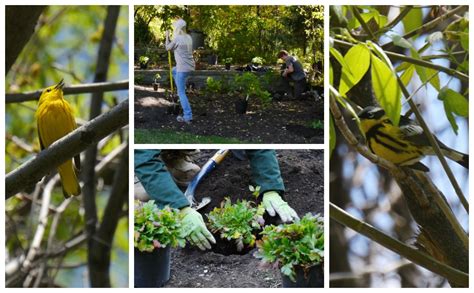Introduction
Parrots are incredibly intelligent and social creatures that have a natural curiosity and a strong need for mental and physical stimulation. Providing your parrot with a spacious and enriching environment is essential for their overall well-being and happiness. Creating a parrot-friendly garden can be a rewarding way to give your feathered friend the opportunity to explore, forage, and socialize while enjoying the outdoors.

Benefits of a Parrot-Friendly Garden
- Improved Physical and Mental Health: A parrot-friendly garden provides ample space for exercise, exploration, and mental stimulation. This can help prevent boredom, obesity, and other health issues.
- Natural Environment: Gardens mimic parrots’ natural habitats, providing them with a sense of familiarity and security. This can reduce stress and promote overall well-being.
- Foraging Opportunities: Gardens offer a variety of plants and flowers that parrots can forage for, providing enrichment and satisfying their natural foraging instincts.
- Socialization: If you have multiple parrots, a garden can provide a safe and controlled environment for them to interact and socialize. This can prevent loneliness and promote positive relationships.
Key Considerations
Before creating a parrot-friendly garden, consider the following factors:
- Size and Location: The garden should be large enough for your parrot to fly and explore comfortably. Choose a location that is protected from predators and has access to shade and shelter.
- Safety: Remove any potential hazards from the garden, such as poisonous plants, sharp objects, and open water features. Ensure that the fencing is secure and prevents escape.
- Variety: Provide a diverse range of plants, including fruit trees, berry bushes, flowers, and safe herbs. This will attract a variety of insects and birds, providing foraging opportunities.
Bird-Friendly Plants
Choose plants that are non-toxic and provide nutritional value for parrots. Some ideal bird-friendly plants include:
- Fruits: Apples, bananas, berries, pomegranates, pears, peaches
- Vegetables: Carrots, celery, corn, leafy greens, peas
- Flowers: Hibiscus, marigolds, sunflowers, zinnias
- Herbs: Basil, cilantro, mint, parsley
Amenities for Parrots
In addition to plants, consider adding bird-friendly amenities to your parrot-friendly garden:
- Nest Boxes: Provide nest boxes for parrots to use for nesting or shelter. Ensure the nest boxes are securely placed and have a safe entry point.
- Perches: Install various perches at different heights and angles to allow parrots to rest and survey their surroundings.
- Water Features: Create a shallow water feature, such as a birdbath or pond, where parrots can bathe and drink. Ensure the water is clean and free of chemicals.
Maintenance and Safety
- Regular Cleaning: Regularly remove droppings and debris from the garden to maintain hygiene and prevent disease.
- Pruning: Prune plants regularly to remove dead or diseased leaves and branches, as these can be hazardous to parrots.
- Monitor Birds: Observe your parrots closely while they are in the garden. Monitor their behavior for any signs of stress or illness.
Conclusion
Creating a parrot-friendly garden is a fun and rewarding endeavor that can greatly enrich the life of your beloved feathered companion. By providing a safe, spacious, and stimulating environment, you can promote your parrot’s physical and mental well-being and foster a strong bond with nature.





















